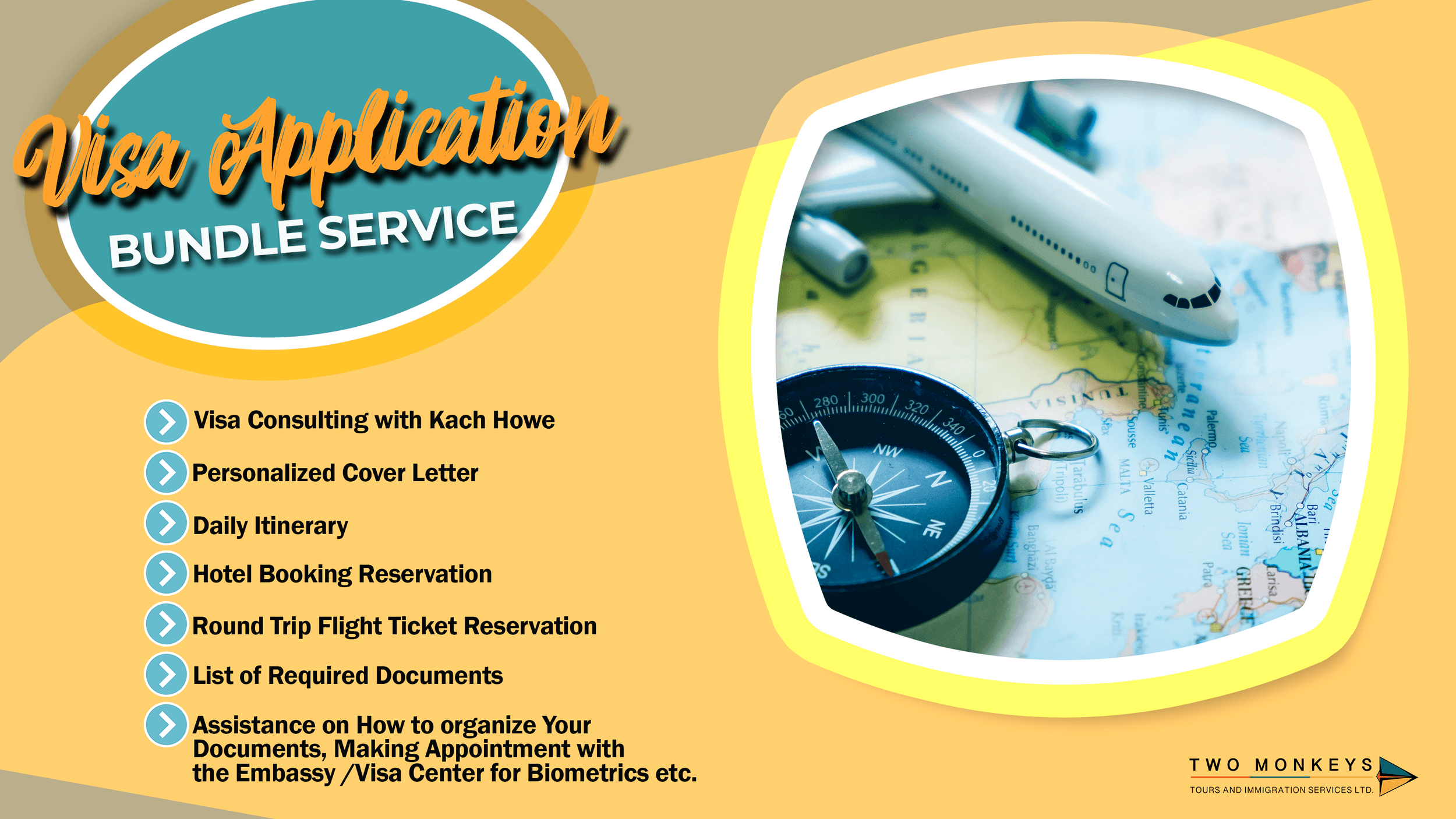How to Get a Libya Tourist Visa in London for British Citizens
I’ll be very honest. It’s not so easy to find information about traveling to Libya, especially for a British Citizen. If you do a quick search on the internet, the most that you’ll find our websites with very little to no information on how you can obtain a visa to this country.

However, reading online forums and comment sections, you’ll find numerous visitors expressing interest in visiting Libya and ex-pats (and former visitors) spouting nothing but gratitude towards the Libyan people and saying they haven’t felt uncomfortable being in Libya at all.
- How to Teach English in South Africa – English Teacher Jobs in Africa
- Your Dream Africa Trip – Encounter Gorilla and Wildlife Safari in East Africa
- How to Apply For A South Africa Tourist Visa with Your Philippines Passport
- Ultimate List of Best Cheap Hotels in South Africa
- Gorilla Safaris in Africa – The Best Way To Go on Mountain Gorillas Tracking in Rwanda & Uganda
Looking at photos and articles written about Libya further, one can’t help but be amazed by its beauty, especially by the archeological sites waiting to be discovered by the world around it. And of course, as travelers are mostly curious minds wanting to discover the unknown, it may have made you want to visit Libya more. If you’re a British citizen wondering if it’s possible to visit Libya with your UK Passport, read further.
Table of Contents
Quick Facts About Libya Tourist Visa for British Citizens
Validity: 45 days
Stay: 30 days
Number of Entries: Single
Where to Apply: Through Travel Agency
Processing Time: At least 10 days
Note:
There must be no Israeli stamps on the passport.
Requirements for Having Libya Tourist Visa
- Libya Visa Application Form
- Current passport, valid for 6 months after your departure date
- Passport size photo
- Employment Letter or a cover letter stating your profession (a requirement for some tour operators)
- Proof of Approval/ Visa Reference Number from a tour operator in Libya
Step-by-step Procedure in Applying for Libya Tourist Visa
IMPORTANT: As there’s a lack of information regarding applying for a Libyan visa in London, it is advisable to seek help from a Libyan tour operator when applying for a visa.
1. Get a tour operator in Libya and avail of their Libyan visa service.
2. Submit all the requirements issued by the tour operator so they can process your visa for you.
3. Once everything’s all set, you’re on your way to travel to Libya!
Quick Facts About Libya
Capital: Tripoli
Country Code: +218
Languages Spoken: Arabic, English in some places
Currency: Libya Dinar (LYD)
Emergency Numbers: +218 193 for Police, +218 190 for Fire, +218 191 for Ambulance
Frequently Asked Questions About Libya
1. How long does it take to process my tourist visa to Libya?
According to tour operators, it takes them at least 10 working days from the day they receive your application form and your other documents to process the application.
2. How much does it cost to apply for a tourist visa to Libya?
Since there’s very little information on official websites and we’re currently looking into applying for a visa through a tour operator, the cost varies depending on how much they charge.
3. How long is my tourist visa valid for?
Tourist visas are valid from 45 days upon issuance and will grant you a 30-day stay in Libya.
4. Should I get a vaccine before traveling to Libya?
According to Travel Health Pro UK, your routine vaccination courses (MMP or measles-mumps-rubella and Diptheria-tetanus-polio vaccine) must be up-to-date before visiting Libya.
5. What should I do upon arrival in Libya?
You must register your stay in Libya with the local police within a week of your arrival. Tour operators usually handle this on the traveler’s behalf.
6. Is it safe to travel to Libya?
If you listen to the news and the travel advisories then no, it’s not safe and you might not even step foot in Libya because these websites say you must not plan a trip to the country at any cost.
However, if you delve deeper into online travel forums, you’ll find tons of ex-pats living in Tripoli, as well as visitors from all over the world, saying they’ve yet to feel threatened by anything that the media says is happening around the country.
Take this advice with a grain of salt, though, as you’ll still be the one to decide on your terms if you want to travel to Libya or not.
If, in any case, you still push through with traveling, just remember not to travel late at night, especially when you’re alone.
Also, constantly monitor local security situations when you’re already in Libya to be up-to-date with the country’s situation.
7. Should I get insurance when traveling to Libya?
Definitely! You must get comprehensive travel and medical insurance plan before you leave for Libya.
8. What are some facts about the Libyan culture that I should remember?
Before you take any pictures or talking to any military personnel/facilities, make sure that you have permission to do so.
One interesting thing that I’ve read about Libya is that they find it offensive if someone shows them the soles of the shoes or feet. This is a part of the Arab culture in general and is also widely known within Libya. The feet, as a whole, are considered unclean in their culture.
When eating a traditional Libyan meal with your hand, always use the right one instead of the left. The left side of the body is considered as unclean in Islamic culture.
The way Libyans establish trust is through eye-to-eye conversations. This means if you are negotiating with someone or having a deal with them, you must have a physical meeting with them.
Seniority plays a huge part in their culture. It’s the most important or the senior ones who often arrive at a meeting last, sometimes, even late.
9. Do they speak English in Libya?
Yes! English is becoming a popular foreign language among the younger Libyan generation. This also comes with the emergence of ex-pats living in the country.
If you plan on visiting, you’ll surely find people around the city who’ll be able to communicate with you easily.
10. How do I go around Libya?
The usual modes of transportation in Libya have shared taxis, buses, and coaches. In the past, tourists using these modes of transportation are unheard of. But with the restrictions now lifted, you’ll see visitors riding these vehicles as well.
11. Can I use my credit card in Libya? Can I have my money exchanged?
Libya is a cash society so you should bring your local currency with you and have it exchanged in the bank. There’s also a black market where you can get more value for your money, but it’s advisable not to risk your safety by going this route.
It’s also prohibited to import and export their local currency.
As for credit cards, there are very few establishments that accept them. The safest way is to have your budget for the trip ready with you to avoid problems.
12. When is the best time to visit Libya?
Libyan climate is a mixture of 5 different ones such as Mediterranean and Saharan. This means that summers can be warm and can’t be as cold as other countries.
The best time to plan a trip to Libya is from February to December. During this time, the heat and the amount of rainfall are bearable, especially to those who aren’t used to this type of climate.
13. Why should I visit Libya?
As a country who has endured most of its lifetime under different rulers (Greeks, Romans, Italians, and even Gaddafi), you’ll find Libya as the perfect mixture of the great ancient civilizations which is evident in its ancient structures and sites scattered all around the country.
In Tripoli, you’ll find the ruins of the olden times like the Arch of Marcus Aurelius which can be traced back to 165. It was built to commemorate the victories of Lucius Verus, brother of Marcus Aurelius, over the Parthians in the Roman-Parthian War.
Here, you’ll also find the Red Castle or the Assaraya Alhamra Museum in Arabic. Built as a defense of the city against invaders in the 20th century, it now serves as a home to some of the most important historical pieces in all of Libya.
Leptis Magna is also a famous archeological site in the country which, if you’ll look closely, resembles that of the ancient ruins found in countries like Italy and Greece. It rose to prominence during the Carthaginian Empire and finally fell to the Muslim invasion after a series of historical events.

For nature lovers, Libya is also home to expansive and majestic deserts like the Awbari where you’ll find a beautiful oasis amidst the endless orange sand of the desert.

Are you on Pinterest? Pin these!




